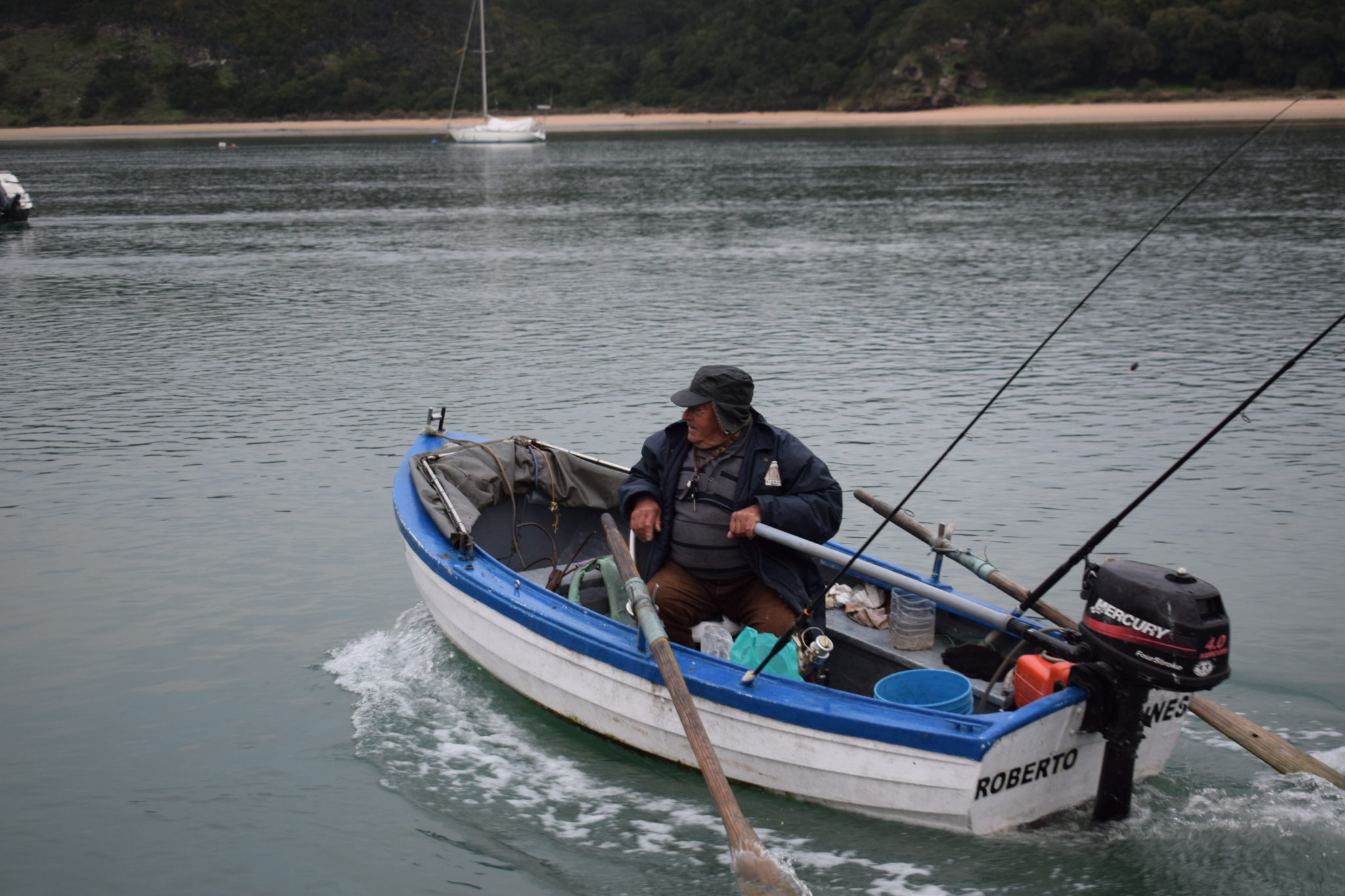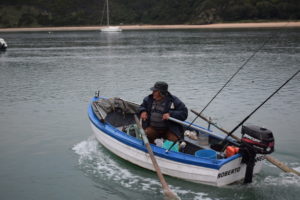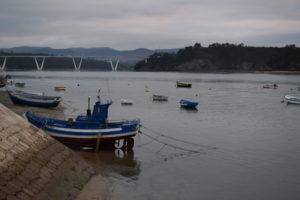The region of Vila Nova de Milfontes is denominated from north to south of the country as the “Princess of the Alentejo”. A designation that, among many factors, is attributed to it being a village bathed by the Rio Mira. A land of fishermen, long accustomed to observing the sunrise and the end of the day, wishes to return with the sense of accomplishment.
Antonio Domingues is one of those men who chose the sea as a “bread winner” and now, at age 85, choose the river as a place of relaxation and pastime. Born in Lisbon and coming from a family of merchants, he changed his professional life at Docapesca in Pedrouços, by boat, his fishing rod and his meetings with the fish lobster. At that time, he understood that “there was a source of income.”
After twelve years of knowledge of this art of sailing, he says that it is essential to distinguish several phases in the fishing of the people. The artisanal fishing usually dealt with, corresponds to the sport fishing, more associated with the retired fisherman. A type of fishing in which it is not allowed to catch fish to sell at the fish lobster, even if it is possible for own consumption. On the other hand, artisanal fishing in its broadest sense is related to professional fishing.
According to António Domingues, fishing has already been really a people’s profit, with a capacity to catch thousands
of species that cannot be diverted from the probes. The fishermen end up being sold in the fish lobster at a minimum price, not having in most cases, value for trade, which forces them to be returned to the sea. The fisherman says that these are routine situations and therefore, and defends a more regularized fish, in which it is not allowed to catch certain volumes of fish with the aid of some arts that already are prohibited.
Regarding the care with the Mira River, reports that in general it is notable a good use of this. What he condemns is the lack of vigilance with regard to vacancy and pig farms, where there is abuse and neglect in throwing certain objects and liquids, such as oils and fats, into the river. Although authorities are already investigating the situation, the fisherman says that “it is rarely seen, but there are times when they are at risk”.
The bad practices are also prolonged on some occasions when António says he has already seen other fishermen in the region casting the river as well as applying nets identical to mosquito nets, which are prohibited by law and are normally used to catch eels called by “meixão”. A species without authorization of capture since the year 2000 in all the Portuguese rivers, except for the Minho.
In this area, there are horticultural crops, which instigates the use of fertilizers in large quantities, one of the many factors that according to António Domingues, contribute to the river is less clean. This situation occurs, with a decrease in the number of algae, an increasingly scarce food in the seabed.
In relation to the Autarchy and the intervention of local organs, it is considered a certain slouch and consent for the Mira River.
During these 85 years, he observes a fishing with some affection and affirms not found many evils in the sport fishing. However, he does not believe that the habitat of the species is destroyed by fishing with a reed in his hand. As always, human greed disrespects the survival of species. It recalls countries that are sometimes referred like wild for not generating a certain degree of development. But he considers that these countries are who that respect nature 100%.
For the fisherman, there is still a future for this work, but it depends a lot on whether fishermen are encouraged not to give up, essentially, for all expenses, fuel costs, taxes and fish, which is not much anymore.
According to the perspective of Mário Nunes, an experienced fisherman, owner of one of the fishing goods stores and
still Secretary of the Autarchy of Vila Nova de Milfontes, the conditions are precarious for the fishermen and some of the implemented ones make the activity difficult. In his view, “there are certain species that make sense a time of his protection, but there are other species in which they do not.” He argues that one cannot simply consider the theory, for there must be real knowledge of the terrain.
In the name of Autarchy, he says that the local government want to improve the conditions of the future, taking into consideration the next generations. In this way, one of his most recent interventions took place in the “Canal”, one of the places most frequented by the fishermen of the region. More storage was provided for your gear, making these spaces cleaner and brighter. It also emphasizes that efforts are being made to keep this activity possible, but that the local government cannot be the only one to reflect on the preservation of nature. There are other responsible organisms like the “Orla Marítima” and the Natural Park.
In Mário Nunes’s opinion, there should be the protection of the octopus on the Rio Mira. Normally, in the month of January, spawning of this species begins. And the reality is that the fishermen catch the octopus by the time it has just spawned. The fishermen are not allowing reproduction and are harming themselves. Therefore, if the octopus spawns in a certain period, at that same time it should not be allowed to catch it.
Both believe in this profession and have knowledge that means for many people a moment of leisure and peace. António Domingues says he will continue to “go joking” because fishing makes him feel younger, but Mário Nunes will continue in the municipality trying to care for the interests of fishermen and the region he represents.






You must be logged in to post a comment.